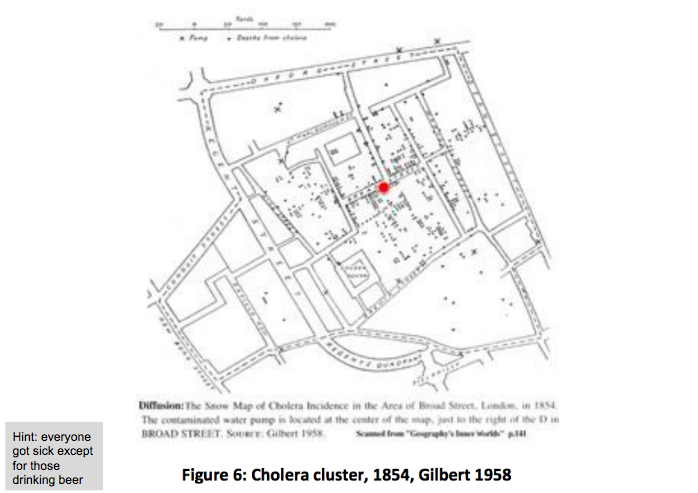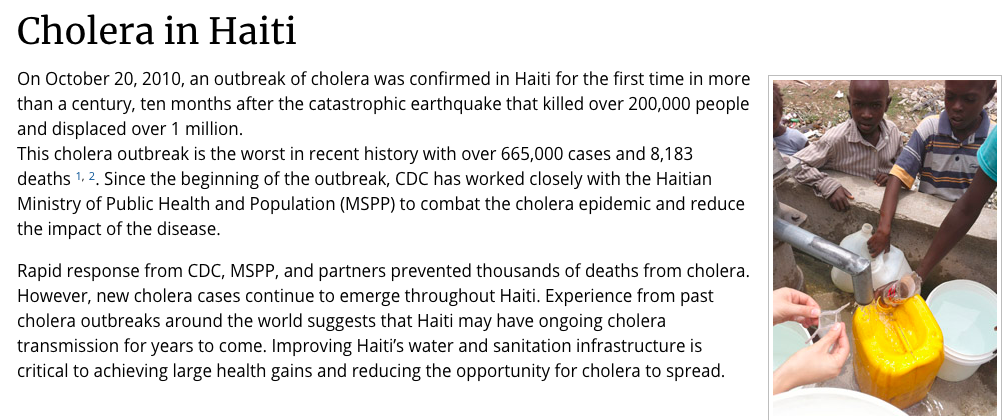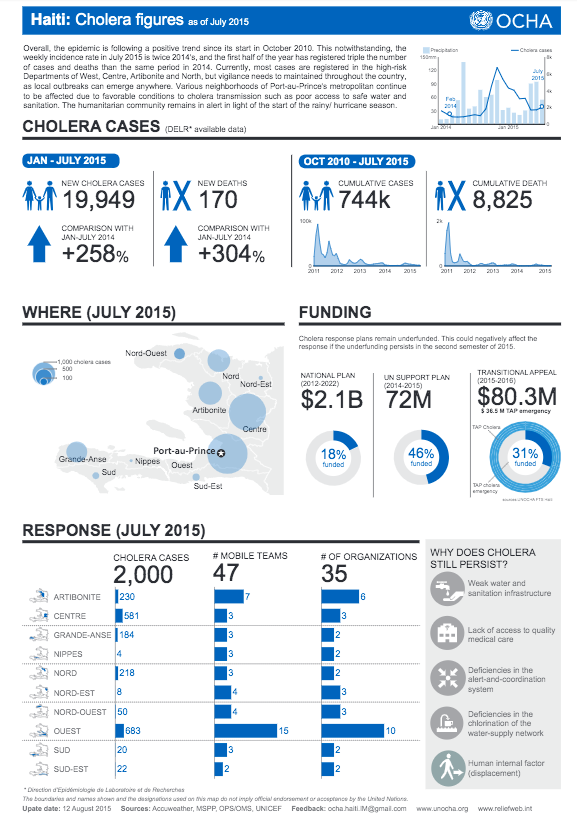|
Water-borne pathogens can be divided into three main categories:
|
|
TASK:
Watch the following introductory video below; record some of the statistics provided:
Watch the following introductory video below; record some of the statistics provided:
Case Study: Cholera
Cholera is an infectious and often fatal bacterial disease of the small intestine contracted from infected water supplies and causing severe vomiting and diarrhoea.
TASK:
TASK:
- Click on the following link to the World Health Organization's (WHO) brief overview of water-borne pathogens.
- Make note of some of the common causes for illness due to water-borne pathogens
- Click on the following link to an interactive world map of cholera. This map shows data (provided by WHO) of cholera outbreaks from 1971-2016. Take a look at where cholera is often prevalent. Also look at your chosen country (Portfolio Project country) -- has there been any serious incidents of cholera epidemics or not?
Historic Case Study of a Cholera Outbreak: London, 1854, Dr. John Snow
TASK:
Take a look at the historic map below. What do YOU predict caused the cholera outbreak in Soho, London in 1854. Watch the video (below, right). Record notes on the following:
1. What did Dr. Snow discover was causing the rapid spread of cholera and what did he do to prevent further rates of infection?
2. Why was Dr. Snow's work considered significant in the field of epidemiology?
Take a look at the historic map below. What do YOU predict caused the cholera outbreak in Soho, London in 1854. Watch the video (below, right). Record notes on the following:
1. What did Dr. Snow discover was causing the rapid spread of cholera and what did he do to prevent further rates of infection?
2. Why was Dr. Snow's work considered significant in the field of epidemiology?
Modern-day Case Study of Cholera: Haiti, 2010 - 2015
TASK:
- Look at the information below about the outbreak of Cholera in Haiti in the aftermath of a devastating earthquake in 2010.
- Make note of how the epidemic started and spread and the conditions that make it is so pervasive and hard to end.
- In the video "Haitians Seek Billions from U.N.", what has been discovered about how the cholera outbreak began and who is responsible for introducing it.
- Watching the "Haiti Humanities Lab - Cholera Mapping Project" video below, what did using mapping and graphing technology allow students at Duke University come to understand about the historical presence of cholera in Haiti?
Source for the excerpt and image above: https://www.cdc.gov/cholera/haiti/index.html
BONUS MATERIAL BELOW (Optional Case Study)
Modern-day Case Study of Water-borne Community Health Threats: Malawi
OPTIONAL TASK:
Watch the following video and take notes on some of the work being done to address water-borne disease in villages in Malawi.
Watch the following video and take notes on some of the work being done to address water-borne disease in villages in Malawi.


